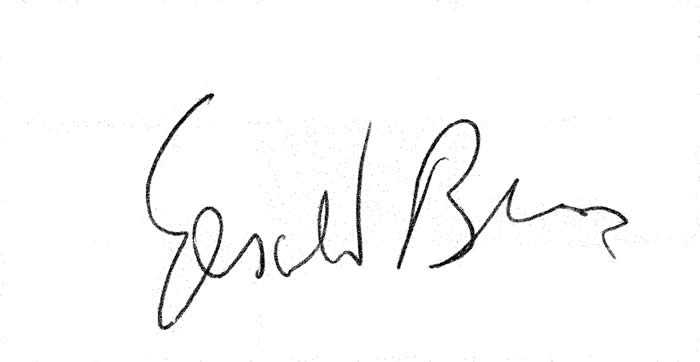
Assent, and she can live out her life in the apartment in Berlin,
with food stamps. Repeat after me, Heil Hitler."
That, Ricardo, is what I meant by an unthinkable alternative.
Gods in Nature
Chronos was old, old. Like the Leech-gatherer he had become his clothing
He'd forgotten who he was, stood hours before crescent lichen on treetrunk,
going as if in Piranesi's dream neither up nor down. If the tree used to
be a nymph he'd known the nymph. Water no longer flowed for him, but he
would not cross it. "The gods," he said, "have become stones. I am a stone."
He felt nothing. His vision was good, even microscopic, he could see·springtails
without laying a trap for them with a piece of paper. His eyes had forgotten to be old
"I am ... " he said. He neither ate nor drank. Nor thought. Or speech was always
going on in him, like the stream that had stopped flowing. "Past" was a word in Lovecraft,
vaguely Hebrew, unintelligible. He neither ate nor drank. There's magic in immobility.
Eons passed. Having forgotten how to count, the lichen, neither new nor old, had no
determinate existence or principle of distribution. The tree grew old and died. He
stared where it had been, until there grew another tree, the same species or
another, it was all one to him. A rustling, some nymph chased by a faun or vice
versa. It melted into the forest, melted into the tree. The tree was a candle.
The woods were burning. Chronos stood on the ash, his feet neither burned
nor not. Perhaps he didn't have feet. A man came by in a red cap, following
the riverbank. A woman in a white cap. A squirrel in the branch above him
grew old and died. A plane passed overhead, skywriting something or other.
The tree was a mailbox. Chronos fumbled in his garment, found a pencil.
There was nothing to write on except the sky, so he drew clouds. It rained.
He was wet, dry, looked down and saw a worm in the shape of a letter C.

I've never been clear how the gods "live," but they seem to. It's as if we had
two Middle Ages, the second Nietzsche, Kierkegaard's first important book on Socrates,
Keats memorizing whole pages of Lempriere, without being able to say why, a need
for importance, something agreed on, no more solid than their geometry. Years
I spent in the Dallas Institute of Humanities and Culture, listening to people talk
of Artemis, Venus, Pan, Hestia, kings and queens in alchemy, Jung, their presumption
that these were bearers of value, exegetes, renaissance healers, as if the meaning
escapes and is meant to. Hillman said animals' faces were a lead-in to their bodies,
and treated gods as if they led to cherishable disease. Mercury tells us things,
really stories, along with sulfur, lead, salt, an open-ended taxonomy if
the beginning's open too, Patricia Berry's lecture on Hamlet and stopping, and
lately Elizabeth Burns in Poetic Briefs complained of being stopped, trying to think
about Coolidge. My daemon stopped me Dec. 12th to Jan. 27th, is that news?
Socrates died because he listened. (Punch never does, always in attack mode.)
TB stopped Keats, too late to go (as it was for Sam Johnson) to Italy, where Emerson
found all art in Naples and Florence just like real people he knew, no need to
go to see, but hated, in his lectures, his habit of exaggeration. Do Hillman, Berry,
Tom Moore? Pat's stage fright nearly stopped her in her stopping lecture; now
she wins poetry slams. Hestia's a hearth god, like something in Tender Buttons, say
the section on cups. Gods and saints seem to be different even if both are legends.
Hillman and Berry put up electric fencing to keep their horses in, planted a
row of trees by the roadside I thought a mistake and said so. Charles Boer, collaborator
in Freud's Own Cookbook was often there. I gave him the review of his Olson in
Connecticut and was later told he badmouthed me all over Cannes.
Copyright Gerald Burns 1995-1997